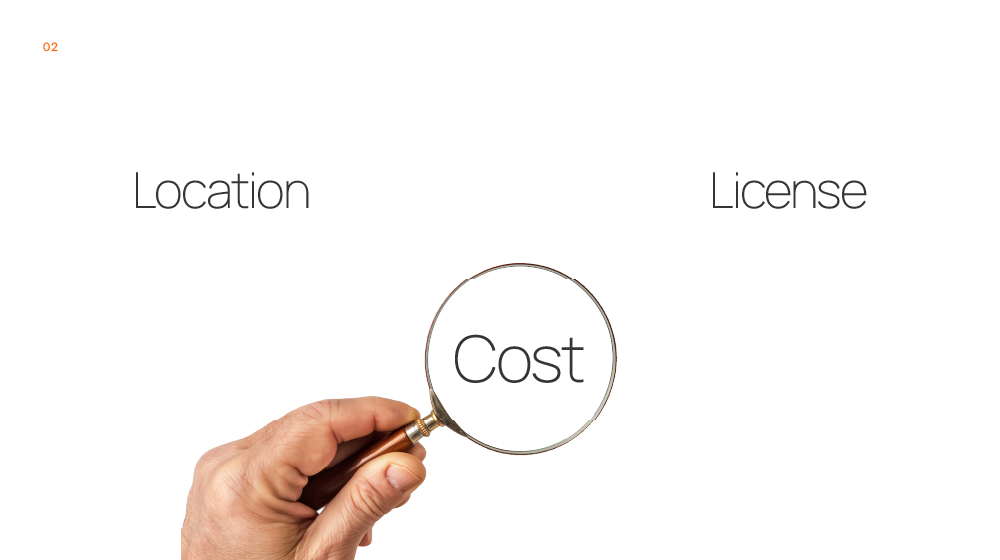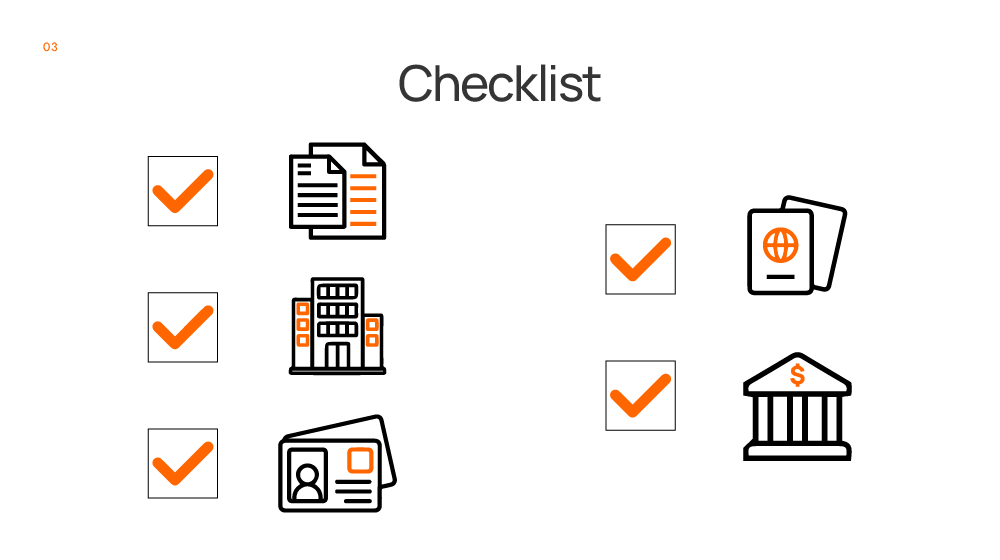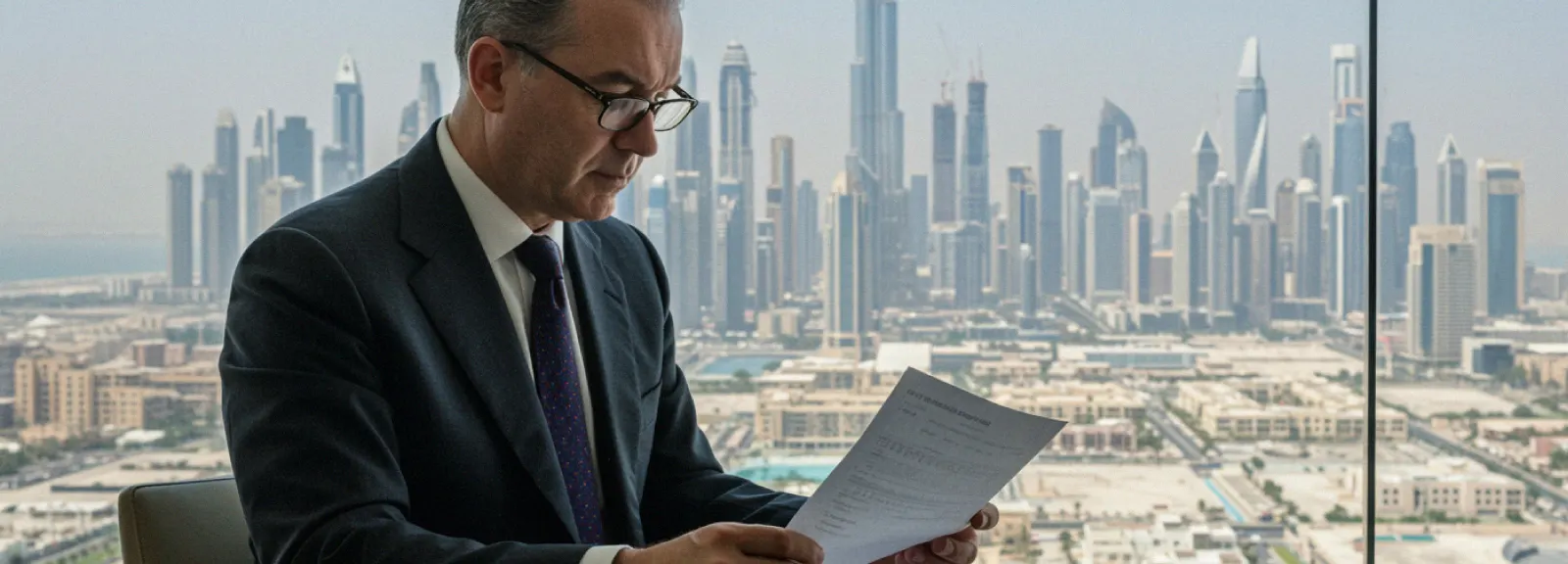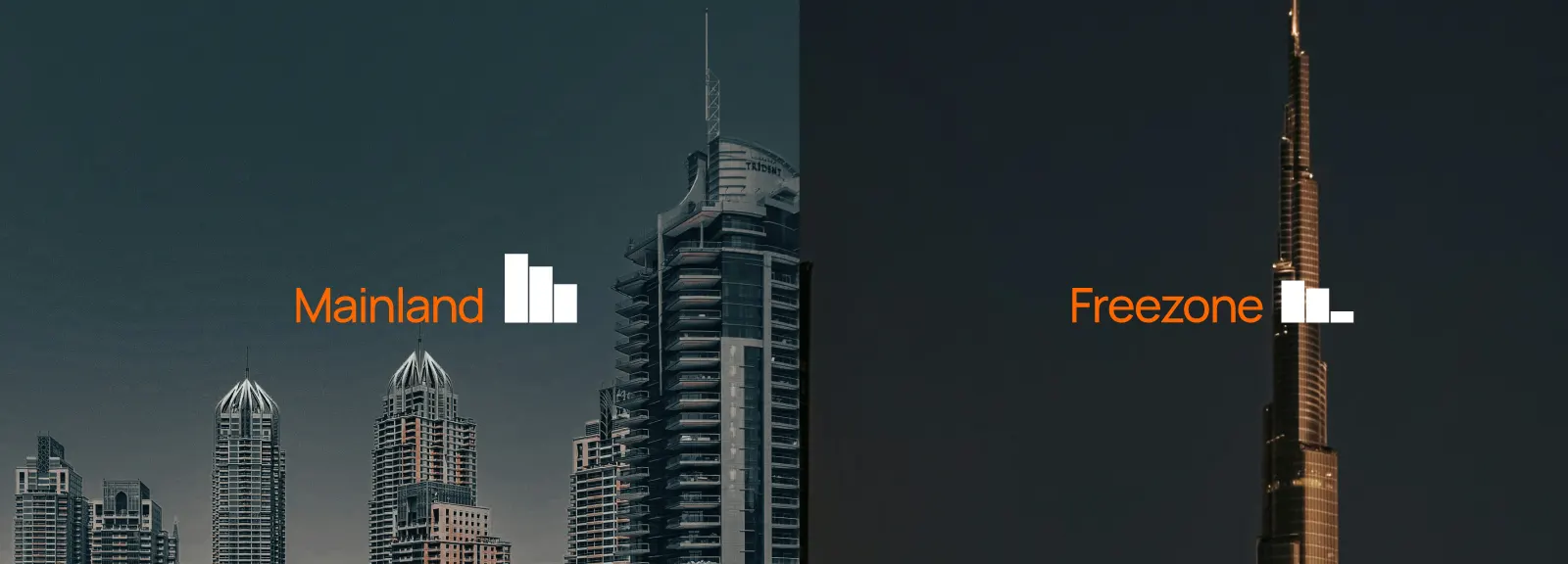Starting a business in Dubai is a smart move, but only if you know where to begin. With more entrepreneurs choosing the UAE in 2025, the question isn't should you set up here, it’s how to do it right from the start. One of the most efficient ways to set up a company in Dubai is through its free zones. These zones offer serious advantages: full foreign ownership, tax exemptions, fast registration, and built-in infrastructure designed to support specific industries.
Still, the challenge most founders face isn’t deciding whether to use a free zone—it’s choosing the right one. That’s because there are more than 30 of them across Dubai alone, and each one has its own focus, rules, and pricing. Pick the wrong one, and you could end up with license restrictions, limited banking access, or unnecessary delays.
This blog post is written to give you clarity before you spend a single dirham. You’ll get a complete understanding of why free zones in Dubai remain a popular choice for global entrepreneurs. You’ll also find a detailed list of free zones in Dubai, broken down by sector, so you can quickly compare your options. We’ll walk through the difference between setting up in a free zone versus mainland or offshore, and what to consider when choosing your setup. You’ll also see what the setup process actually looks like in 2025, how much it costs, what mistakes to avoid, and how to move faster by choosing the right zone from the start.
Table of Contents
Why More Entrepreneurs Are Starting Their Business in Dubai Free Zones
You get full foreign ownership, no personal income tax, and access to over 200 nationalities working across finance, tech, logistics, and media. It’s not just global—it’s built for growth.
According to the Dubai Chamber of Commerce, over 67,000 new businesses were registered in the first half of 2024, with a large share choosing to set up inside free zones.
So why are Dubai’s free zones the preferred choice?
1. Full Ownership, No Local Partner
You own 100% of your company. No need for a UAE national sponsor, unlike some mainland setups.
2. Tax-Free Incentives
Most free zone companies are exempt from the 9% corporate tax, as long as their income qualifies. Personal income tax remains zero.
3. Quick Licensing and Residency
Many free zones issue licenses and visas in under 7 days—ideal if you want to move fast.
4. Industry-Focused Zones
The list of free zones in Dubai includes hubs for tech, media, logistics, finance, and manufacturing—each with tailored support.
5. Strategic Location
With world-class ports, airports, and banking, Dubai makes cross-border trade and global expansion simple.
Now let’s look at the complete list of free zones in Dubai and how to choose the one that fits your business best.
The Ultimate List of Free Zones in Dubai (And How to Pick Yours Fast)

There’s no shortage of opportunity in Dubai, but choosing the right setup starts with understanding the full list of free zones in Dubai. Each one is created with a specific type of business in mind—from media and logistics to finance, crypto, or manufacturing. That means your success isn’t just about where you set up, but whether the zone you choose actually supports the type of company you want to run.
Before we dive into the full list, it’s worth answering a common question: how many free zones in Dubai are there in 2025?
Right now, there are over 30 active free zones in Dubai, each operating independently with its own authority, licensing rules, and pricing. That’s part of what makes Dubai so flexible—there’s no one-size-fits-all structure. But it also means you need to compare carefully.
So let’s break down the list of free zones in Dubai by category, so you can figure out which ones are aligned with your business goals.
1. Tech & Innovation Free Zones
If you’re building a product, platform, or service in tech or IT, these are the free zones built to support you.
Dubai Internet City (DIC)
One of the most well-known tech zones in the UAE, home to companies like Microsoft, Oracle, and Dell. It supports software, digital platforms, cloud, AI, and blockchain ventures. The list of free zones in Dubai wouldn’t be complete without DIC—it’s a staple for any tech-driven business. In fact, Dubai internet city has added AED 100 billion to Dubai’s GDP over the past 15 years.
Dubai Silicon Oasis (DSO)
Offers a mix of residential and commercial setups with licensing for electronics, hardware, and software companies. Also includes incubation support and R&D facilities.
Dubai AI and Web 3.0 Campus (within DIFC)
A newer entrant tailored toward AI, crypto, and blockchain startups. Strong government backing and fast-track licensing options.
If your business is remote-first or digital, this is where you’ll want to focus your research on the list of free zones in Dubai.
2. Media & Creative Zones
These are built for content creators, marketers, designers, production houses, and publishers.
Dubai Media City (DMC)
Hosts broadcasters, PR agencies, advertising firms, and publishers. With studio space and flexible licensing, it’s ideal for digital and traditional media.
Dubai Design District (d3)
If you’re in fashion, architecture, product design, or interior design, d3 offers a focused environment with retail and gallery spaces.
Dubai Studio City
Tailored to film production and broadcasting, with on-site facilities and sound stages.
These hubs are a key part of the list of free zones in Dubai for creative professionals, offering both flexibility and an ecosystem to grow in.
3. Finance & Trade Hubs
If you’re looking to register a finance, trading, or crypto business, these zones are designed for you.
Dubai International Financial Centre (DIFC)
A globally recognized financial hub, regulated by the DFSA. DIFC company setup is best suited for private equity firms, asset managers, hedge funds, and fintech startups.
Dubai Multi Commodities Centre (DMCC)
The most awarded free zone in the world, DMCC is built for commodity trading, crypto, and general trading businesses. It supports over 24,000 companies as of 2025. The list of free zones in Dubai frequently ranks DMCC as a top choice for international trade.
Gold & Diamond Park
A niche but strong free zone for jewelry traders and manufacturers.
If your business involves cross-border trade, capital markets, or crypto, these zones should be at the top of your list of free zones in Dubai to consider.
4. Logistics & Manufacturing Free Zones
If you’re shipping products or managing inventory, you’ll need space, infrastructure, and global access.
Jebel Ali Free Zone Authority (JAFZA)
Strategically located near the Jebel Ali Port, this is one of the oldest and largest free zones in the UAE. Ideal for import/export, warehousing, and logistics.
If you want to lower costs and still grow faster, here are 5 ways JAFZA Freezone helps businesses do both.
Dubai South Free Zone
Adjacent to Al Maktoum International Airport, this zone is tailored for aviation, logistics, and e-commerce companies.
Dubai Industrial City
Built for manufacturing, packaging, and food processing companies. Plenty of warehousing and large-scale facilities available.
The list of free zones in Dubai catering to logistics and manufacturing businesses is smaller but highly specialized. These zones are purpose-built to support movement of goods.
5. Education, Healthcare & Consultancy Zones
Professional services need licensing options that allow for flexibility and credibility.
Dubai Knowledge Park (DKP)
Built for training centers, educational institutes, and consultancy firms in learning and development.
Dubai Healthcare City (DHCC)
Licensed for hospitals, clinics, medical training, and healthcare consultancies. Regulated by a healthcare-specific authority.
These are highly regulated areas of the list of free zones in Dubai, but they offer prestige and access to industry-specific facilities.
6. eCommerce & Remote-Friendly Zones
If your business is online, remote, or doesn’t require office space, these are some of the most cost-effective options in the list of free zones in Dubai.
IFZA Dubai (International Free Zone Authority)
Offers low-cost licenses, multiple activity combinations, and no mandatory office requirement. A favorite for consultants, freelancers, and eCommerce startups.
Meydan Free Zone
Fully digital process with affordable packages, allowing remote business operation. Great for solopreneurs and early-stage founders.
Shams (Sharjah Media City) (Just outside Dubai, but often compared)
While technically in Sharjah, it’s commonly reviewed alongside the list of free zones in Dubai due to its digital services and affordability.
So, how many free zones in Dubai offer virtual offices or low-cost licenses? As of 2025, over 10 zones support remote-first or flexi-desk setups—perfect for digital businesses and solo founders. That’s nearly a third of the total list of free zones in Dubai, showing just how founder-friendly the city has become.
If you’re an expat setting up in Dubai for the first time, knowing what type of trade license suits your plan is just as critical.
What to Look for When Choosing a Free Zone

There are over 30 free zones in Dubai and more than 50 across the UAE. But not all are built the same. If you choose the wrong one, it can slow you down—or cost you more long-term.
Here’s what to check before picking from any list of free zones in Dubai:
1. License Flexibility
Some zones allow multiple activities under one license. Others don’t. Make sure your business type is supported—and ideally, that the zone lets you scale without extra fees.
2. Office Requirements
Do they force you to lease a space—or allow a virtual desk? If you’re remote or just starting out, the latter gives more flexibility and keeps costs low.
3. Clear Pricing
Many advertise low base rates but sneak in hidden fees. Compare full costs—license, visas, office, renewals—before you decide.
4. Visa Limits
Need more than one visa? Some zones only give one in the starter package. Others let you add more easily.
5. Bank Account Support
Opening a UAE business bank account isn’t easy. Some zones help with this, some don’t. Ask upfront if they support banking access.
6. Mainland Access
Want to sell to UAE customers? Some zones allow it through a distributor or local branch. Others don’t. If you’re planning to grow locally, this matters.
7. Sector Restrictions
Every zone has a list of allowed business activities. If you’re in a regulated field—like healthcare, finance, or education—check if the zone is approved for it.
There are dozens on the list of free zones in Dubai, but only a few will fit your model. Start with your business activity, short-list 3–5 zones, and compare based on what matters: license type, cost, flexibility, and support.
The Setup Checklist (Don’t Miss These 6 Steps)

If you’re serious about setting up in Dubai, this is the checklist you follow. Skip a step, and you risk delays, fines—or worse, choosing the wrong zone entirely.
Here’s how to move fast without messing it up.
Step 1: Lock in Your Business Activity
Before scanning any list of free zones in Dubai, get clear on what your business actually does. Every free zone approves specific activities—and if yours isn’t on the list, you’re out of luck.
If you’re in a regulated field (crypto, health, education, finance), make sure the zone you’re eyeing has the authority to issue that license.
Step 2: Shortlist the Right Free Zones
Not all zones are equal. Some are built for remote businesses. Others expect physical offices. Some start at AED 6,000, others at AED 25,000+. Visa packages, reputation, and expansion flexibility vary wildly.
So don’t just chase price. Use a smart list of free zones in Dubai to match your setup needs with the right zone. Think:
- Remote vs. physical office
- Visa flexibility
- Industry alignment
- Mainland access (if you want it later)
One bad choice now could cost you more to fix later.
Step 3: Pick the Best Legal Structure
Most founders go with:
- FZE: One owner
- FZCO: Multiple owners
- Branch: For expanding an existing business
Some free zones on the list of free zones in Dubai offer holding structures or dual mainland licenses. Choose what fits your business model now—and what gives you room to grow. If you want to go deep and learn what’s best for you, here’s our guide on how you can pick the right legal structure of a business.
Step 4: Get Name Reservation + Initial Approval
Once you’ve chosen the zone, reserve your business name and submit for initial approval. You’ll need a passport scan, basic business description, and selected activity.
Pro tip: Use the list of free zones in Dubai to double-check if your name fits their rules—some are stricter than others.
Step 5: Secure Your Office (Even If It’s Virtual)
Every zone requires an address. Some bundle a flexi-desk into your license. Others charge separately. If you want more visas or need help with banking, go for zones that offer real leases—not just a virtual setup.
Check the list of free zones in Dubai to see which ones include visa slots or offer physical space options.
Step 6: Final License + Bank Account
Now you’re ready to submit final docs and pay. Your license usually arrives in under 10 days—sometimes even faster.
Then comes banking. Some free zones make it easier by offering introductions. Others don’t. If this matters to you, choose wisely from the list of free zones in Dubai that are known for smoother banking support. Our recent guide breaks down how you can open a bank account in the UAE the correct way.
How Much Does It Actually Cost to Start in a Free Zone?
Prices vary—but not knowing what you’re paying for is where most new founders get burned.
That “AED 5,000 license” you saw? It’s real—but limited. It’s likely from a smaller free zone with fewer visa options, stricter activity lists, and basic support.
To get a realistic idea of your startup cost, don’t just look at ads—compare the full list of free zones in Dubai with these in mind:
- License fees (AED 5K–AED 25K+ depending on zone and activity)
- Visa cost per person (AED 3,500–AED 6,000)
- Office/flexi-desk (some included, others charge extra)
- Add-ons like banking, medical tests, Emirates ID, etc.
Some free zones on the list of free zones in Dubai bundle these into clean packages. Others break it all apart.
The bottom line is that you’ll likely spend between AED 12,000 and AED 30,000 all-in.
Common Mistakes That Delay Your Setup (And How to Avoid Them)

Most delays don’t come from the government—they come from founders rushing in without reading the fine print.
Here’s how to avoid the most common pitfalls when choosing from the list of free zones in Dubai:
- Wrong business activity: Not every free zone supports every activity. Check if yours is approved before applying.
- Skipping visa planning: Some zones offer 0 visas by default. If you need team members, choose from the list of free zones in Dubai that provide multiple visa quotas.
- Assuming all costs are included: Always ask what’s not in the package—especially for Emirates ID, medicals, and office space.
- Picking the wrong zone for your industry: A tech business in a logistics zone will feel out of place. The list of free zones in Dubai includes sector-specific hubs—use that to your advantage.
Small errors can cost you weeks. Double-check the zone, license type, and scope before you hit “submit.” And if you want to avoid the common challenges businesses face when setting up in the UAE, here are 8 must-know challenges and how to avoid them.
Avoid Costly Setup Mistakes with the Right Free Zone Strategy

Setting up in a Dubai free zone sounds straightforward until you’re navigating vague license categories, hidden setup fees, limited visa quotas, and long wait times with little guidance. Many founders waste weeks chasing documents, picking the wrong zone, or paying for services they don’t need. Worse, they realize too late that they’ve chosen a free zone that doesn’t actually support their business model.
At GCG Structuring, we guide you through the entire process of free zone company setup, starting with selecting the right option from the list of free zones in Dubai based on your industry, growth goals, and visa requirements. We don’t offer a one-size-fits-all package. We help you map out a setup that’s both compliant and cost-efficient.
From documentation and licensing to bank account opening and residency visas, our team handles each step with of opening a company in Dubai by transparency, so you’re never left guessing. If you’re serious about setting up in Dubai and want it done right the first time, click the button below.
FAQ
1. 0 What’s the risk of choosing from a random list of free zones in Dubai?
You might end up in a zone that restricts your license type, adds hidden costs, or limits your operations.
2. 0 How many zones are in the list of free zones in Dubai?
There are over 30 active zones in the list of free zones in Dubai, with updates as new ones launch or old ones close.`
3. 0 Do all zones offer 100% ownership?
Most in the list of free zones in Dubai do, but always check for exceptions.
4. 0 Is there a list of free zones in Dubai that offers multi-year license discounts?
Yes, but those deals aren’t always advertised. A detailed list can reveal long-term cost-saving options.
5. 0 Why does the list of free zones in Dubai change every year?
The list of free zones in Dubai changes because zones update their offerings, merge, or rebrand. A good list reflects these changes so you don’t fall behind.
5. 0 What’s the best way to use the list of free zones in Dubai if I’m not in the UAE?
Use the list of free zones in Dubai as a decision map. Shortlist your top 3 options, then consult someone local to validate the fit before you spend.





